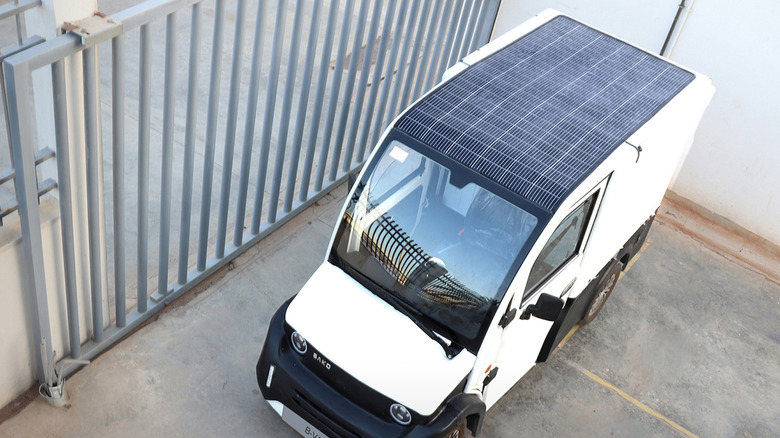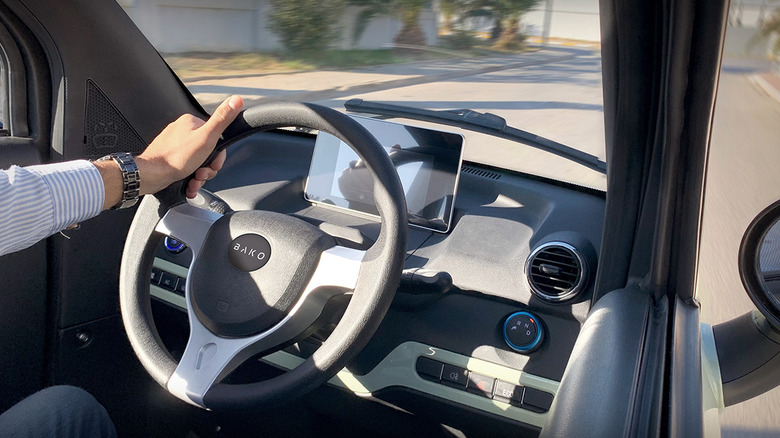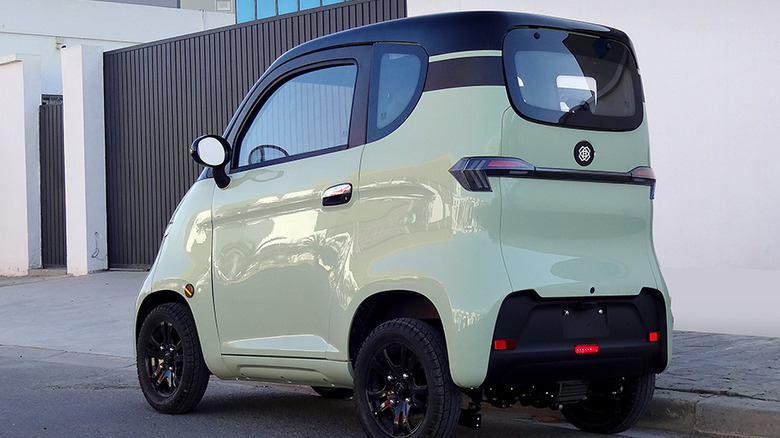This Tunisian Startup Has An Answer To Expensive EV Charging: Solar Rays
Every type of EV charging comes with a price tag, but North African startup Bako Motors has a pretty simple workaround: just let cars charge themselves. Bako's ultra-compact cars and fun-sized cargo vans actually have solar panels on the top. Those panels feed energy directly to lithium batteries onboard, giving drivers free and renewable power whenever the sun's out. (In Tunisia, that's about 3,000 hours annually — on par with the sunny, southwestern part of the United States.)
With most EVs across the continent still depending on electricity from the power grid, Bako Motors hopes to rewrite that equation by tapping into one of the region's most abundant resources: sunshine. In fact, Bako believes sunlight can meet "more than 50%" of its vehicles' total energy needs. The startup's vehicles can still plug in to charge like a traditional EV, but the true standout feature is the solar panel rooftop.
U.S. startups like Aptera Motors and its three-wheeled EV have put a similar emphasis on solar charging, with other prototypes popping up over the years in places like Japan and the Netherlands. The difference is that most of these other startups have (so far) failed to be commercially viable... mainly because of their high costs and the lack of constant, direct sunlight. By comparison, Bako is an electric vehicle brand made with the realities of northern Africa's climate in mind.
The current Bako Motors lineup
Bako Motors currently offers two different models: the B-Van and the Bee. The B-Van's starting price is 24,990 Tunisian dinars, or about $8,500. It's a four-wheeled delivery vehicle that can carry up to 400 kilograms (or 882 pounds) of cargo and drive between 100 and 300 kilometers (about 62 to 186 miles) on a single charge.
The smaller Bee starts at 18,264 TND (roughly $6,200). It's a two-seat microcar designed for city commuting, with a range of 70 to 120 kilometers (44 to 75 miles) and a top speed of 45 km/h (27 mph). Both vehicles use lithium iron phosphate batteries and can recharge to 100% in as little as three hours tops. That's with a fast charger, though. For the B-Van, a normal charger will take six. Neither one gives you a ton of distance per charge, making them better for driving around town than traveling from city to city. Still, the solar panels can give drivers up to 50 extra kilometers of charge (about 30 miles, or near 50% for the B-Van) per day while you drive, making them more than just a gimmick.
How Bako Motors hopes to accomplish what others haven't
This Tunisian startup clearly wants to go where others haven't by focusing on affordability, practicality, and local production over futuristic aesthetics or luxury features. More than 40% of the manufacturer's parts come from the region, including the steel and the lithium-iron-phosphate batteries. With any luck, Bako's efforts will be the thing that lets EVs with solar panel roofs finally find their footing in a region where range anxiety, unreliable power grids, and fuel imports have been major hurdles.
Even so, the company faces plenty of other limitations. It's probably going to have a hard time branching out to other markets with rainy or snowy seasons where the panels' performance would completely drop off for many months at a time. And since efficient solar charging needs full sun exposure, drivers would have to leave their cars parked outside instead of in a garage or under a shelter. And, considering Bako's claim that you only get 50 kilometers max of solar charging a day, it would take a couple of days to get a full charge like that. It might work in Tunisia, but time will tell if it'll work anywhere else.
Bako Motors has produced about 100 vehicles so far, and they've started construction on a new and improved factory set to open in late 2026. The new facility will let Bako scale up its annual production to as many as 8,000 vehicles for markets across Africa, the Middle East, and Europe.


